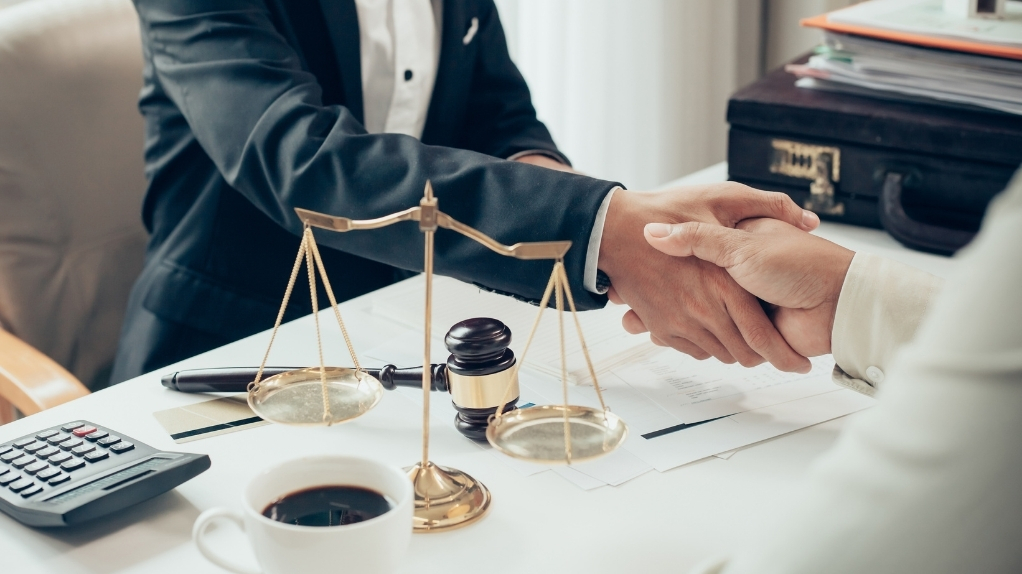Maneuvering the complexities of the justice system can often feel daunting for those who are not familiar with it. Grasping criminal law and its consequences is crucial for anyone who wants to safeguard their rights and make educated decisions. Whether you are confronting criminal charges, dealing with a family law issue, or looking to file a personal injury claim, the advice of an seasoned attorney can make all the impact.
In this article, we will delve into insightful insights from attorneys that cover a variety of legal topics. From knowing when to hire an attorney to understanding what to anticipate during your primary legal consultation, we will present applicable advice that everyone should be aware of. You will also learn about the typical legal blunders people make and how to choose the right lawyer for your specific case. With real examples and suggestions tailored to various areas of law, this guide intends to empower you with the knowledge you need to handle your legal issues with assurance.
Essential Law Advice
Navigating the judicial system can be intimidating, but understanding a few key law tips can significantly ease that process. Initially, consistently consult an legal expert when you find yourself in a legal situation. Whether it's a small dispute or a grave criminal charge, legal representation is essential. Lawyers bring knowledge that can assist safeguard your entitlements and concerns, guiding you through intricate legal terminology and navigating the court process effectively.
Another important tip is to record everything pertaining to your legal matter. This comprises maintaining documentation of discussions, emails, and any other correspondence. my website can be the factor between winning and failing a trial. Being systematic not only helps your attorney formulate a strategy but also makes certain you’re thoroughly prepared for any legal proceedings that may arise.
Additionally, it is vital to comprehend your legal rights in specific situations. For example, knowing your rights during a police stop or what to do if you're injured in a car accident can enable you to make informed decisions. Knowledge of your legal rights can help you act correctly and confidently, ultimately supporting your case should legal action be required.

### Selecting the Appropriate Lawyer
Choosing the right attorney is important for managing any legal matter successfully. Start by identifying the specific field of law that pertains to your situation, whether it’s criminal defense, injury law, domestic law, or business law. Every area has its own complexities, and a lawyer specialized in your area will have relevant expertise and experience that can greatly benefit your case. Invest time to research attorneys with a specializing in your legal needs, as this can make a significant difference in the outcomes you achieve.
Once you have narrowed your options, consider the attorney's standing and past performance. Look for internet reviews, testimonials, and case histories to gauge their level of success and client happiness. Setting up consultations with potential lawyers will provide insights into their approach, communication style, and how comfortable you feel collaborating with them. Trust and rapport are essential, as a positive lawyer-client relationship can ease the stress of the legal process.
Finally, it is important to discuss fees and billing arrangements beforehand. Ensure that you understand how the attorney bills for their services, whether it's a fixed fee, hourly rate, or contingency basis. Clarity regarding financial expectations can prevent misunderstandings later on. Considering these elements will help you make an knowledgeable decision, leading to a partnership that enhances your legal journey.
Grasping Lawful Systems
Navigating the legal framework can be challenging, especially for those unfamiliar with its various facets. The judicial procedure often commences as soon as a conflict arises or an situation happens that requires lawful intervention. Understanding how a legal case functions, from filing a lawsuit to possible outcomes, is vital for people contemplating lawful action. It is essential to realize that not all instances of legal disputes must go to court; many disputes can be resolved through negotiation or settlement, which can save time and money.
Once a lawsuit is initiated, the involved parties participate in a information-gathering phase where they exchange proof and insights relevant to the case. This stage is essential as it lays the foundation for arguing positions in court. Parties must also understand the timeframe involved, as court processes can often take weeks or even longer before obtaining a verdict. Being well armed at each point can substantially impact the conclusion of a legal action.
For those unsure of their position in a lawful matter, consulting an attorney can clarify whether they have a strong lawful position. Law professionals analyze the information and proof, offering insights into the validity of the claim and strategies for advancing. This preliminary assessment can aid people make informed choices on how to act, whether this means going to trial or an other resolution.
